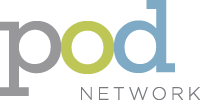In February, I wrote to you about being optimistic, but then I fell silent. I’ll admit I’ve struggled the past couple of months to keep up my positive outlook. In Ontario, we are under a full stay-at-home order until June 2 due to the continued rise in COVID cases. Vaccine roll-out has been slow here (I finally got my first shot on May 1!), and it’s unclear when our students will get their turn. Nonetheless, Fall planning has begun for a return to campus despite all the uncertainties like building occupancy limits and variants. I can’t quite believe it, but I think I was busier at work this March and April than during the same timeframe last year.
So, our recent call for conference proposals captured my feelings well: tired, stressed, and worried. Above all, I worry about all my Centre staff and how they are coping when I can only see them via online meetings. We have done a ton of work, but how best do I honour their efforts and ensure that their stories get told so the behind-the-scenes work is acknowledged? Yes, CTLs are on institutional radars in new and exciting ways—and I’m grateful for that and all the possible opportunities. But what about the people? How do we humanize the efforts?
In my Centre, we create an annual report where we describe our efforts via stories, graphs, and photos. We have tended to structure this report according to our ongoing activities and strategic priorities, with a clear focus on initiatives, tasks, and outcomes. But our report for May 2020–April 2021 is going to be different. It’s going to focus much more on the people: our staff, our client groups, our administrators. We need to tell the stories about the people involved in our work. And to do this, we have decided to highlight our Centre’s values.
Many CTLs have a values statement as part of a suite of identity statements such as vision and mission. I ran a retreat with my staff just before the pandemic shut everything down last March, and then returned to the ideas generated last fall to develop a values statement for our Centre. I even co-developed a POD conference session about this work.
Overall, we have three main values that ground us: being supportive, creative, and invested. What stands out for me is this: our values are humanized. They aren’t about what we do, but rather how we all approach our work. They are about the people.
It strikes me that this level of humanization may also be valuable to think about in relation to the POD Network. I fully recognize that we have a pretty constant rotation in committee and Special Interest Group (SIG) leaders, and a third of our conference attendees are new to the organization each year. So yes, there’s a lot of change, but there’s also a lot of consistency in that our organization is first and foremost about people.
Our current values statement indicates that “The work and decisions of the POD Network are informed by its commitments to: collaboration, equity, and evidence”. Where are the people in this statement? What if our values were that our members commit to being collaborative, equity-minded, and evidence-based? How might this change influence how we engage with one another and what our organization can be? How could it affect our diversity, equity, and inclusion work in particular?
These questions link to a couple of ideas that emerged from DEI-focused training that the Core Committee engaged in last fall: the need to focus on heart work (not just head work) and the need to humanize the entire organization. Who are our members as people? I want the POD Network to be a place and a space where we can all share who we are and what we care about: our celebrations as well as our ongoing challenges. Because it’s about way more than initiatives and activities: it’s about the people.
And some new actions are underway. Committee and SIG chairs have been asked to demonstrate equity-mindedness by proposing changes to our Governance Manual to open up pathways to leadership. In addition, the Executive and Core Committees have been discussing strategies for changing and expanding our narratives by having members share their experiences through activities such as an informal video series and more affinity group spaces. If you have ideas about how to further humanize our organization, including how we live our values, please reach out and let me know.
Best,
Donna
Dr. Donna Ellis
POD Network President
Director, Centre for Teaching Excellence
University of Waterloo, Waterloo, ON Canada
[email protected]

